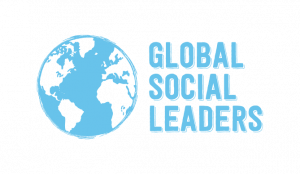We are delighted to share a blog written by student Chalisa Pusitdhikul from Bangkok International Preparatory and Secondary School, who is part of a team delivering a Global Goals project for the 2019-20 Global Goals Competition.
Their project is among over 957 social action projects currently running as part of the GSL movement and we are excited to be supporting them to design and lead positive social change in their community.
We learn that we grow healthily when plants grow fertile.ly.
Project Overview
In our local community, we identified that food has been wasted every single day. While many people are starving, people who are not do not care about the food they waste each day. Furthermore, the use of pesticides and synthetic fertilisers are also killing fish and other organisms in the rivers or streams due to farming.
Due to these problems we face in our everyday lives, CACtus aim to use food waste to compost organic fertilisers which can also act as natural pesticides. This allows the plants to grow fertile.ly for the whole ecosystem. Since fertilisers compost take so much time, we decided to try the new recipe that will allow us to compost them faster.
Our products include fruit peel liquid fertiliser, coffee ground fertiliser and egg shell fertiliser. These are all green fertilisers because we believe that the brown fertilisers are already found elsewhere in the farm. Furthermore, these fertilisers, especially the fruit peel liquid fertiliser, acts on the soil very fast so that the impact can be measured within the time frame we have and allow time for improvement as well.
Our Journey
Throughout the journey of GSL, we have found that it is not easy to make a change. We need to have strong determination and responsibilities to drive our action. Our meetings started from random days until we discuss about the GSL project every day. Slowly we are getting engaged into driving the change and we love that it has happened.
Our biggest challenge is to prove that the fertiliser is working within the time frame and showing it to the consumers that they should try it. We have been in touch with Chul farm near our school for using our fertilisers, but they do not look convince that our fertilisers will actually work. Since we do not want to spoil their crops, we have no choice but to collect back our fertilisers. We however, overcame it by buying out own plants. We bought 4 potted plants to test our fertilisers on and if it work, we will be donating the rest of the fertiliser to the ECO team of our school where they own a sunflower garden and other potted plants from planting day.
The Next Chapter
Our next chapter is to spread what we have done to everyone. We want fertile.ly to go global where people start storing their own food waste to make fertilisers for their plants. This would be the only way for us to make it sustainable. For all the young delegates out there, fertilisers are important for plants and for us. We need to ensure that the plants grow fertile.ly, we eat healthy crops and aquatic animals do not suffer. To be able to do this, simply follow us @fertile.ly on instagram and start making your own fertilisers now.
The 2019-20 GSL Global Goals Competition is now open and runs until June 2020. If you belong to one of the 700+ teams of students currently delivering a social action project as part of the competition we would love to hear from you and feature your blog and project photos on our website to inspire others.








